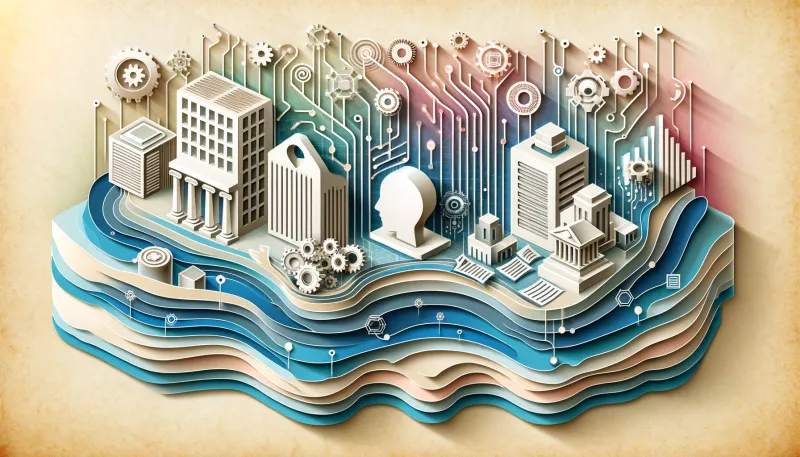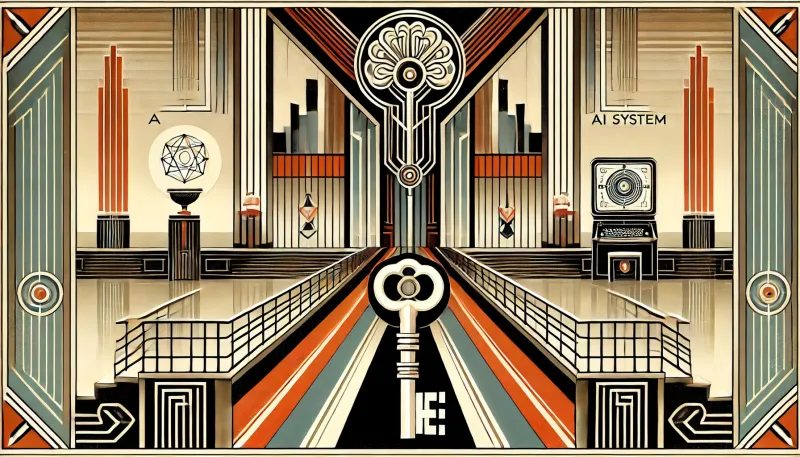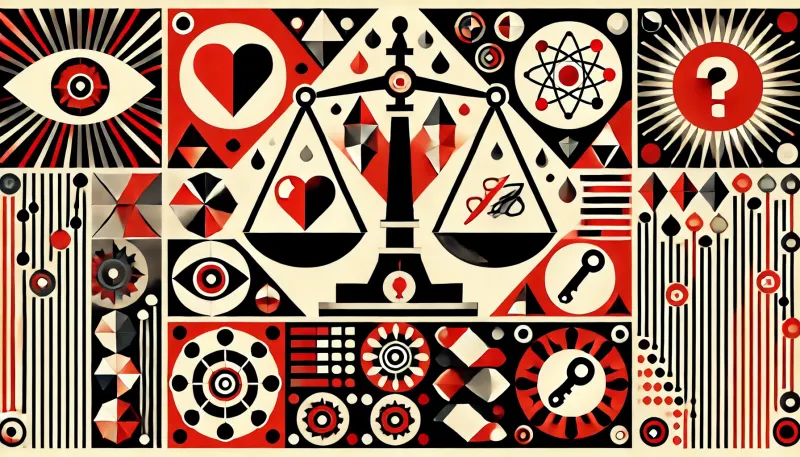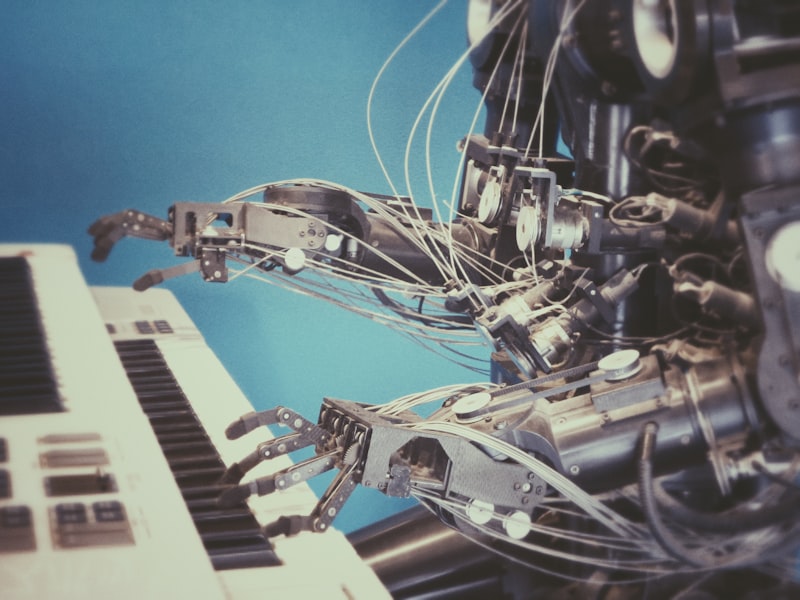The integration of advanced AI models, specifically Anthropic's Claude AI, into U.S. government operations has sparked significant debate among policymakers, technologists, and the public. This technological leap promises enhanced efficiency and responsiveness in governmental functions, marking a milestone in the evolution of public sector services. However, alongside the excitement, concerns about potential privacy violations have emerged.
Anthropic's Claude AI models stand at the forefront of technological innovation, designed to automate complex tasks, analyze vast datasets, and provide insights that human operators might overlook. The U.S. government's interest in these models is driven by their potential to streamline administrative processes, improve data accuracy, and enhance decision-making capabilities across various departments. Despite these benefits, the deployment of Claude AI models raises critical questions about data privacy and security.
This article delves into the core aspects of the integration of Claude AI models in government operations: the structure and functionality of these AI systems, their intended applications, and the spectrum of privacy implications they entail.
What Are Anthropic's Claude AI Models?
An Overview of Claude AI
Anthropic's Claude AI models represent a pioneering step in artificial intelligence. Named to reflect qualities of discernment and sophistication akin to Claude Shannon, the father of information theory, these models transcend traditional AI capabilities. They utilize machine learning techniques and large-scale data analysis to perform a diverse range of tasks autonomously. The U.S. government's interest in these models is based on their potential to revolutionize public administration by providing intelligent, reliable, and efficient systems that can process enormous volumes of information with unparalleled accuracy.
Key Features of Claude AI Models
- Multimodal Capabilities: Claude 3 models can handle both text and visual prompts, making them versatile for various applications.
- Improved Performance: The new models exhibit near-human levels of comprehension and fluency on complex tasks, leading the frontier of general intelligence.
- Enhanced Safety: Anthropic has made significant progress in reducing hallucinations and improving accuracy, making the models more reliable.
Unique Features and Capabilities
Claude AI models are distinguished by several unique features:
- Deep Learning Efficiency: Built on state-of-the-art deep learning frameworks, these models identify patterns and correlations across massive datasets, crucial for data-intense applications such as economic forecasting and national security assessments.
- Adaptive Algorithms: These algorithms continuously refine their predictions and outputs as they encounter new data, ensuring sustained accuracy and reliability.
- Multimodal Inputs and Outputs: The ability to handle diverse formats—from text to images to videos—makes these models versatile tools in various governmental contexts, from cybersecurity monitoring to legal document processing.
- Ethical and Safe AI Operations: Anthropic emphasizes ethical considerations and safe operational practices, aiming to mitigate risks associated with AI misuse.
- Interoperability: Ensuring seamless integration with existing governmental IT infrastructures reduces the complexity and cost associated with deploying new technological solutions.

How Will the Claude AI Models Be Used by the U.S. Government?
Applications in Government Operations
The U.S. government plans to utilize Claude AI models for a wide range of applications:
- Improved Citizen Services: Claude can streamline document review and preparation, enhancing the efficiency of government agencies in providing services to citizens.
- Enhanced Policymaking: The AI models can provide data-driven insights to support better policymaking decisions.
- Realistic Training Scenarios: Claude can create realistic training scenarios for various government functions, improving the preparedness of government personnel.
- Disaster Response Coordination: In the future, AI could assist in disaster response coordination, enhancing public health initiatives, and optimizing energy grids for sustainability.
Addressing Common Misconceptions
A common misconception is that AI deployment in government operations leads to job losses due to automation. While AI can automate many repetitive tasks, the introduction of Claude AI models holds the potential to create new roles and opportunities. There will be a growing demand for AI specialists, data analysts, ethics advisors, and oversight professionals to manage these advanced systems. Rather than seeing this technological advancement as a zero-sum game, it should be viewed as a transformative shift that redefines job roles and improves overall operational efficiency.

What Are the Privacy Implications of Claude AI in Government Use?
Privacy Concerns and Issues
The deployment of Claude AI models raises significant privacy concerns, particularly regarding the collection and use of personal data for model training. Key issues include:
- Lack of Transparency: Anthropic's privacy policies lack clear and accessible information about data handling practices, making it difficult for users to understand how their data is being used.
- Potential for Hallucinations: Despite claims of reduced hallucination rates, the lack of open-source benchmarks and validation hinders independent verification of these claims.
- Partnership Concerns: Partnerships with tech giants like Google and Amazon raise concerns about third-party data usage and its implications for user privacy and data security.
Mitigation Strategies
To address these privacy concerns, Anthropic can implement several strategies:
- Enhanced Transparency: Improving transparency in privacy policies to encourage a more open and accountable approach to data handling.
- Establishing Rigorous Benchmarks: Developing rigorous benchmarks for hallucination and bias to ensure more reliable and unbiased AI models.
- Comprehensive Remediation Process: Implementing a comprehensive remediation process for data deletion and model unlearning to address data privacy and the potential misuse of personal information.
Conclusion
Anthropic's introduction of Claude AI models to the U.S. government offers significant potential for improving various government functions. However, the deployment also raises privacy concerns due to the lack of transparency in data handling practices and the potential for hallucinations. To mitigate these risks, Anthropic must enhance transparency, establish rigorous benchmarks, and implement a comprehensive remediation process.
By embracing advanced AI systems like Claude, the U.S. government has the opportunity to set a precedent for innovative governance that prioritizes efficiency, responsiveness, and ethical standards. This balanced approach will help harness the full potential of AI for public good while safeguarding individual privacy rights.
References
Anthropic. (2024, June 26). Expanding access to Claude for government. Retrieved from https://www.anthropic.com/news/expanding-access-to-claude-for-government
Anthropic. (2024, March 14). Introducing Claude. Retrieved from https://www.anthropic.com/news/introducing-claude
Anthropic. (2024, March 4). Anthropic introduces new Claude GenAI model. Retrieved from https://www.pymnts.com/news/2024/anthropic-takes-on-google-and-chatgpt-with-new-claude-genai-model/
Zapier. (2024, July 17). Claude 3: A guide to Anthropic's AI models and chatbot. Retrieved from https://zapier.com/blog/claude-ai/
AI Governance and Accountability: An Analysis of Anthropic’s Claude. (2024). ArXiv. Retrieved from https://arxiv.org/html/2407.01557v1






